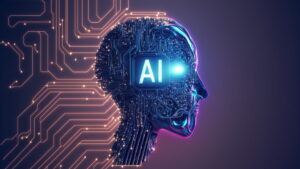Artificial Intelligence (AI) is transforming the world, influencing industries, economies, and everyday life. From its early beginnings as a theoretical concept to its current role in automation, decision-making, and advanced computing, AI continues to push technological boundaries. This article explores AI’s history, key technologies, applications, challenges, and future developments.
The Evolution of Artificial Intelligence
- Early Foundations (1940s-1950s) – Mathematicians and computer scientists, including Alan Turing, laid the groundwork for AI.
- The Rise of Machine Learning (1980s-2000s) – Development of neural networks and algorithms enabled AI to improve over time.
- Deep Learning and Big Data (2010s-Present) – AI advancements driven by deep learning, large datasets, and computing power.
Core AI Technologies
- Machine Learning (ML) – Algorithms that allow computers to learn from data and improve performance.
- Deep Learning – A subset of ML using artificial neural networks to process complex data patterns.
- Natural Language Processing (NLP) – AI’s ability to understand, interpret, and generate human language.
- Computer Vision – AI-driven image and video analysis for recognition, classification, and processing.
- Robotics and Automation – AI-powered robots enhancing manufacturing, healthcare, and logistics.
Applications of Artificial Intelligence
- Healthcare – AI aids in diagnostics, personalized medicine, and robotic surgery.
- Finance – Automated trading, fraud detection, and AI-driven customer service.
- Retail and E-Commerce – AI optimizes recommendations, inventory management, and chatbots.
- Autonomous Vehicles – Self-driving technology leverages AI for navigation and decision-making.
- Cybersecurity – AI detects threats, enhances encryption, and prevents cyberattacks.
Ethical and Societal Challenges
- Bias and Fairness – AI systems can inherit biases from training data, leading to unfair decisions.
- Privacy Concerns – AI’s data collection raises concerns about surveillance and personal privacy.
- Job Displacement – Automation threatens traditional jobs, necessitating workforce adaptation.
- AI Governance – Regulation and ethical AI development remain critical concerns.
- Security Risks – AI-driven cyber threats and autonomous weapons pose global risks.
The Future of AI
- General AI vs. Narrow AI – Moving from specialized AI to human-like cognitive abilities.
- AI in Scientific Discovery – AI’s role in accelerating research in physics, biology, and medicine.
- Human-AI Collaboration – AI augmenting human decision-making rather than replacing jobs.
- Ethical AI Development – Creating transparent and accountable AI systems.
- Quantum AI – Combining quantum computing and AI to solve complex problems faster.
Conclusion
AI continues to evolve, shaping the future of industries, science, and human interaction. While it presents remarkable opportunities, ethical considerations and responsible development are essential for ensuring AI benefits society as a whole. Understanding and adapting to AI’s advancements will be key to navigating the technological landscape of the future.







